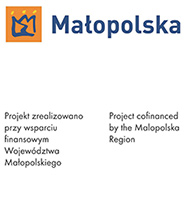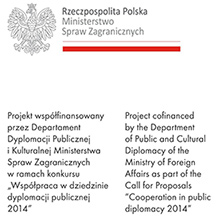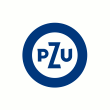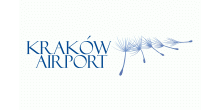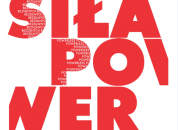
October 23rd is the start of a two-day international conference entitled “The Power of the Powerless Revisited” which constitutes a continuation of meetings devoted to the idea of freedom, organized in Villa Decius for a number of years. The conference will be accompanied by a ceremony of presentation, for the eleventh time, of the Polish Prize of Sérgio Vieira de Mello, the UN High Commissioner for Human Rights (2002 – 2003). Another special event will also be a photography exhibition entitled “Power” presenting chronological development of events in Lviv and Kiev in the last couple of months.
The year 1989 was exceptional not only for Europe but also for the entire world, and brought changes that continue to influence all continents even today. Central and Eastern European communities broke the soviet empire and started to live in a free world, Frederik Willem de Klerk became the president of South Africa and the main driving force in bringing about the end of apartheid in Africa, students in Tiananmen Square launched China on a completely different trajectory of development and democracy began to return to Latin America after years of military dictatorship and authoritarian rule. It was also a year in which a little-known British scientist, Tim Berners-Lee, invented what would become the world wide web.
25 years later, we can observe the process of changes in Europe from many perspectives. We can comment on the legacy of the 1989 events, criticise unwanted developments of democracy and the fact that all around the continent far-right parties “are dancing to the tune of Kalinka” or weep over economic migration inside EU. We can also critise and fear the double nature of the internet which has become a perfect tool of global surveillance.
The first easy example of the unwanted developments comes from Europe where populism and breaking of democratic rules coupled with imposing restrictive laws on individual freedom by right-wing governments challenge not only their democratic legitimation but also the sense of membership in the EU. Intimidation of citizens, however, is by no means a European specialty. The constraints on freedom, especially in Muslim states and India remain horrendous and “hunting” atheists or people of other faiths has become a new national sport, next to golf. Going further to the East, we reach China, the biggest empire of censorship of Internet in the world. Its efficiency, however, occasionally fails and information
about hundreds of thousands of mass protests against policy of “peaceful development” leaks to the public. Problems with observing human rights are still on the agenda in many countries of Latin America indicating that this continent as a whole is still at an early stage of democratisation.
The year 2014 was planned as a year in which the Western world was to observe 100 years of the first world war, and also to celebrate 25 years of the democratic transformation of the European continent. These plans, however, lost its attractiveness in confrontation with developments in Ukraine stimulated by Russia. Violent suppression of protests in Kyiv’s Euromaidan, the annexation of Crimea and the destabilisation of the Eastern Ukraine shocked the entire world. A flagrant violation of international law regulating the use of force reached European borders and Russian subversive actions were met with condemnation and concern almost all over the world.
In 2014 a new war started in Europe challenging Ukraine and the European states. Liberal democracies turned out to be not only poor at decision making but also hesitant when it comes to admitting that a war waging thousands of kilometers away threatens precisely them, their security and comfort of living. They undertake actions slowly believing in their efficiency and that their results will not affect them. Majority of them does not does not hear Ivan Krastev’s warning: „Today we have no idea what else they are ready to do, but they know perfectly well what we are not ready to do”.
The Power of the Powerless Revisited
(draft, 8 October)
Thursday, 23 rd October
10:00 a.m. – 10:15 a.m. Welcome addresses:
Danuta Glondys, Director, Villa Decius Association
Jerzy Miller*, Voivode of the Region
Marek Sowa*, Marshal of the Region
Magda Sroka, Deputy Mayor of Krakow
10:15 a.m. – 11:00 a.m. Opening speech: Bogusław Sonik (Poland)
11:00 a.m. – 12:30 p.m. Debate 1: TIMES OF INNOCENCE
Remembering Solidarity. Political developments in Central Europe in 1989.
Challenges of transformation.
Experts:
Magda Vášáryová (Slovakia)
Lavon Barshcheuski (Belarus)
Jan Lityński (Poland)
László Rajk (Hungary)
Moderator: Krzysztof Bobiński (Poland)
1:00 p.m. – 1:30 p.m. Special lecture: Rüstem Ablâtif (Crimea, Ukraine)
1:30 p.m. – 3:00 p.m. Debate 2: LOST EQUILIBRIUM
The end of the post-cold war world. Methods and tools for regulating internal and
external relations. Citizens in a media trap.
Experts:
Wolfgang Eichwede (Germany)
Enrique ter Horst (Venezuela)
Karolina Wigura (Poland)
Taras Wozniak (Ukraine)
Moderator: Adam Reichardt (Poland)
3:00 p.m. – 3.30 p.m. Opening of an exhibition of documentary photography ”Power”
SPECIAL EVENT
4:30 p.m. – 6:30 p.m. 11 th Awards Gala of the Polish Sérgio Vieira de Mello Prize granted in memory of the United Nations High Commissioner for Human Rights
With participation of the Jury of the Polish Sérgio Vieira de Mello, UNHCHR, Prize*: Jan Lityński, Chancellery of the President of Poland, HE Jorge Geraldo Kadri, Ambassador of Brazil to Poland, HE Staffan Herrström, Ambassador of the Kingdom of Sweden to Poland, Krystyna Żurek, Director of the Department of the United Nations and Human Rights, MFA, Anna-Carin Öst, UNHCR Representative to Poland, Agnieszka Rudzińska, Deputy President of the Institute of National Remembrance, Irena Lipowicz, Human Rights Defender, Jan Piekło, Director of the Polish-Ukrainian Cooperation Foundation PAUCI, Ellen Germain, United States Consul General, Sylwia Gajownik, ZNAK Foundation, Wiesław Nowak, President of ZUE S.A. Jan Pamuła, President of Kraków Airport, Tomasz Sendyka, Smart Practical Logic sp. z o.o., Jacek Weremczuk, Regional Director of PZU and Bogusław Sonik, Chair of Board and Danuta Glondys, Director of the Villa Decius Association.
Simultaneous interpretation will be provided.
Blog:
Polish – Marcel Wandas
English – Ziemowit Jóźwik
Arabic – Kareem Amer
Friday, 24 th October
EXPERT SEMINAR
Round table debate: POWER
10:00 a.m. – 12:30 p.m.
Ukraine – Europe: Imperative of security. Regime of transformation and pressure of dialogue.
Compelled to use power.
Introductions:
Andrij Deshchica (Ukraine)*
Charles F. Doran (USA)
Wojciech Przybylski (Poland)
Moderator:
Michał Vašečka (Slovakia)
Experts:
Rüstem Ablâtif (Ukraine)
Samuel Abraham (Slovakia)
Kareem Amer (Egypt/Norway)
Lavon Barshcheuski (Belarus)
Krzysztof Bobiński (Poland)
Riccardo Campa (Italy/Poland)
Danuta Glondys (Poland)
Wolfgang Eichwede (Germany)
Enrique ter Horst (Venezuela)
Ziemowit Jóźwik (Poland)
Marcin Kędzierski (Poland)
Bogdan Klich (Poland)
Michel Kowalewicz (France/Poland)
Jan Lityński (Poland)
Jan Piekło (Poland)
László Rajk (Hungary)
Adam Reichardt (Poland)
Magda Vášáryová (Slovakia)
Marcel Wandas (Poland)
Karolina Wigura (Poland)
Taras Woźniak (Ukraine)
*waiting for confirmation
14:00 Experts’ study visits
Organizator/Organiser
Współpraca/Cooperation
Fundatorzy/Founders
Sponsorzy/Sponsors
Patronat medialny/Media partners











